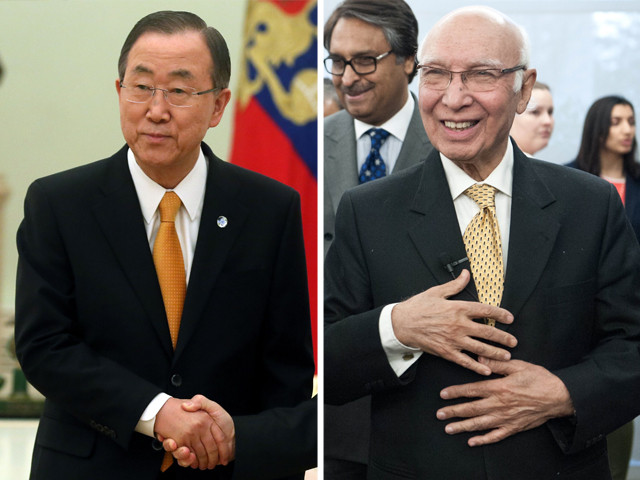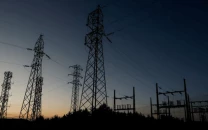Pakistan appeals to UN over border clashes, Kashmir dispute
PM's adviser says UN observation team going to disputed border; demands Kashmiris be allowed to hold a plebiscite

Pakistan appeals to UN over border clashes, Kashmir dispute
He also appealed to UN Secretary General Ban Ki-moon on Saturday for assistance in solving the long-running dispute with India over the status of Kashmir, according to a press release.
"We cannot draw a veil on the issue of Kashmir, until it is addressed in accordance with the wishes of the people of Jammu and Kashmir. The Prime Minister had also reiterated Pakistan’s readiness to work for resolution of this issue through negotiations," said Aziz, adding that India had adopted a policy that runs counter to its stated desire to engage in a serious bilateral dialogue with Pakistan.
Aziz revived Pakistan's demand for Kashmiris to be allowed to hold a plebiscite to decide the region’s future, as called for by a UN resolution adopted in 1948. India has long opposed a plebiscite.
“For decades, Pakistan has been reminding the United Nations and the international community to fulfill that promise, in the interest of durable peace and security in the region,” Aziz said in his letter to Ban Ki-moon.
Former president and military ruler Pervez Musharraf had said in 2003 that he was prepared to set aside that demand in an effort to reach a settlement over Kashmir.
The disputed border running through Kashmir is heavily militarised on both sides. Since the beginning of October, Pakistan and India have been firing mortars and machine-guns across the border, leading to the highest death toll in a decade among civilians on both sides.
It is unclear what started the intense firing, although officers who have served on the disputed Line of Control say that small incidents can rapidly escalate as each side responds with ever-increasing force. India controls more than half of the disputed Himalayan region, and Pakistan controls around a third, while China holds 10 percent of the territory.



















COMMENTS
Comments are moderated and generally will be posted if they are on-topic and not abusive.
For more information, please see our Comments FAQ